Discover the enduring significance of the Mikveh, a 2000-year-old Jewish bath complex. Explore its historical origins, its role in ritual purification, spiritual renewal, and life events. Dive into the architectural features and sacred meaning behind Mikveh’s immersions. Uncover the continued practice and importance of this ancient tradition in Jewish life.
So read on to learn more about this ancient practice and its continuing relevance!
Historical Origins and Significance of the Mikveh
The Mikveh is a ritual bath that holds great significance in Jewish culture. Its history can be traced back to biblical times and has been a central part of Jewish tradition ever since. The word “Mikveh” means “collection,” and it is used as a ritual of purification for individuals who have undergone specific life events, such as marriage, childbirth, or conversion.
The water used in the Mikveh must come from a natural source, such as a river or a spring. The immersion in the Mikveh is a symbolic act of rebirth and a way to connect with the divine and the holy.
Today, Mikvehs exist in communities all over the world, and they remain a vital part of Jewish life and tradition. The Historical Origins and Significance of the Mikveh not only highlight the importance placed on the concept of purity in Judaism but also speaks to the enduring power of tradition and ritual in shaping the lives and identities of people across the centuries.
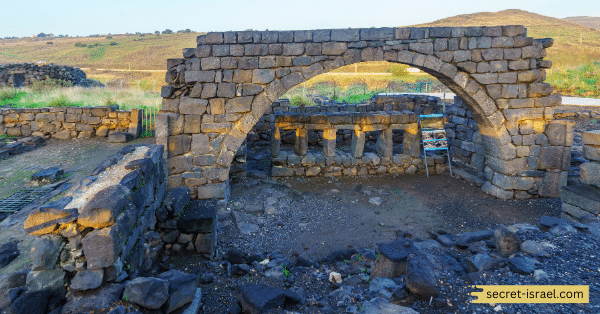
Understanding the Role of the Mikveh in Jewish Tradition
For thousands of years, the mikveh has been an integral part of Jewish tradition, serving as a ritual bath that contains sacred waters believed to purify the soul. According to Jewish law, immersion in the mikveh is required in a number of instances, such as:
- Ritual Purification
- Spiritual Renewal
- Transition and Life Events
- Conversion to Judaism, and many more
The mikveh’s construction is highly regulated, with specific dimensions and materials required to meet religious standards. Despite its ancient origins, the mikveh continues to hold great significance for Jews all over the world, serving as a symbol of spiritual purification and renewal.
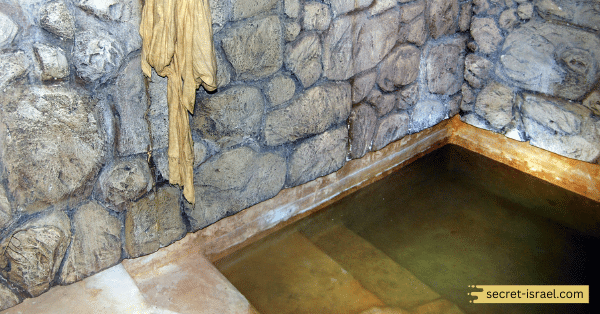
Architectural Features and Design of Mikveh Bath Complexes
The ancient Mikveh bath complex is a testament to the architectural prowess of the Jews. With its intricate designs and details, it reflects its rich cultural heritage and traditions. The Mikveh is more than a mere bathhouse; it is a place of spiritual cleansing and rejuvenation.
The immersion in its waters symbolizes a renewal of the spirit, a rebirth of the soul. Through the centuries, the Mikveh has remained a holy place for the Jews, a reminder of their past, and a beacon of hope for the future.
Its simple yet elegant design has stood the test of time, and it continues to inspire awe and wonder in all who behold it. Truly, the architectural features and design of the Mikveh bath complexes are a masterpiece that reflects the beauty of Jewish culture and faith.
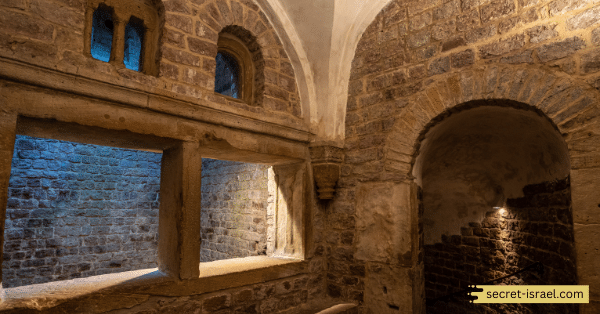
Exploring the Sacred Meaning of Mikveh Immersions
The practice of mikveh immersions dates back over 2000 years, and yet it still holds deeply sacred meaning for Jews around the world today. As a bath complex that is specifically designated for spiritual purification, the mikveh plays a crucial role in Jewish religious life.
Purification Rituals for Individuals and Objects
Purification rituals in the mikveh are not just for individuals – objects can also be immersed to make them “kosher.” This includes items such as dishes, kitchenware, and even clothing.
The act of immersing an item in a mikveh is intended to imbue it with spiritual purity, allowing it to become part of Jewish culture and tradition. In this way, the mikveh helps to reinforce Jewish beliefs and values throughout society.

Conversion to Judaism
A major life event that involves spiritual purification in the mikveh. The process of conversion takes place over several months, during which individuals learn about Jewish law and principles.
At the end of this period, an individual immerses in a mikveh as a symbol of their commitment to living according to Jewish traditions. For many people, conversion to Judaism is an empowering and transformative experience that allows them to become part of the Jewish community.

Burial Ceremonies
Another significant part of Jewish tradition. During this ceremony, individuals are immersed in the mikveh to symbolically cleanse their soul and prepare it for its journey into the afterlife. The ritual is a way to honor their memory and show respect for life’s final passage.
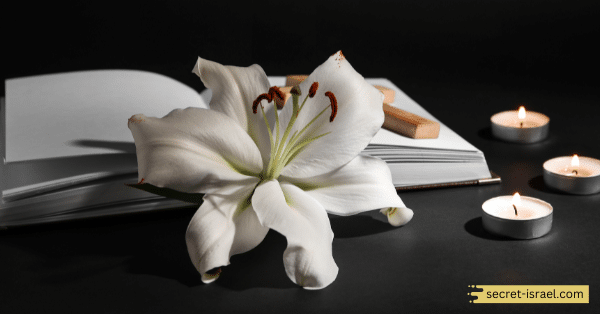
The Continued Practice and Importance of Mikveh in Jewish Life
For over two millennia, Mikveh has been an integral part of Jewish life, and its importance has only continued to grow with time. This ancient bath complex holds a sacred significance as it is believed to cleanse and purify the soul and body of the person who enters it. The ritual bath is not only a symbol of spiritual renewal but also a means of observing mitzvot.
During the Jewish calendar’s countless celebrations and milestones, from weddings to conversions to menstruation, Mikveh plays a crucial role. The practice of Mikveh has remained resilient through the ages, making it one of the oldest Jewish traditions still carried out today. Its continued practice is a testament to the strength of Jewish culture and its most ancient values.
As Mikveh represents the remarkable heritage of the Jewish people, its significance, and importance, can never be overstated.
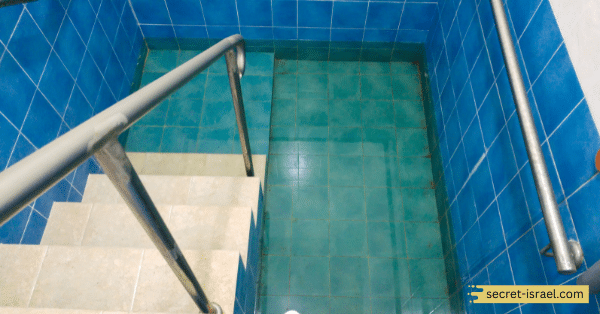
In conclusion
From ancient times to the present day, the Mikveh, a Jewish ritual bath, has continued to play an important role in the lives of Jewish people. This more than 2000-year-old bath complex holds a deep and sacred meaning for Jews.
For observing the practice of niddah—a ritual purity law that applies to women—it is mandatory for married Jewish women to immerse in a Mikveh as an act of purification before being reunited with their husbands.
Moreover, before significant celebrations, such as weddings and conversions, and before the holiest day of the Jewish calendar, Yom Kippur, a visit to the Mikveh is customary. The Mikveh remains a symbol of spiritual rejuvenation, cleansing, and renewal to this day.
Its sheer longevity and the sacredness that it holds are among the elements of cultural diversity that make the world endlessly fascinating to explore.












